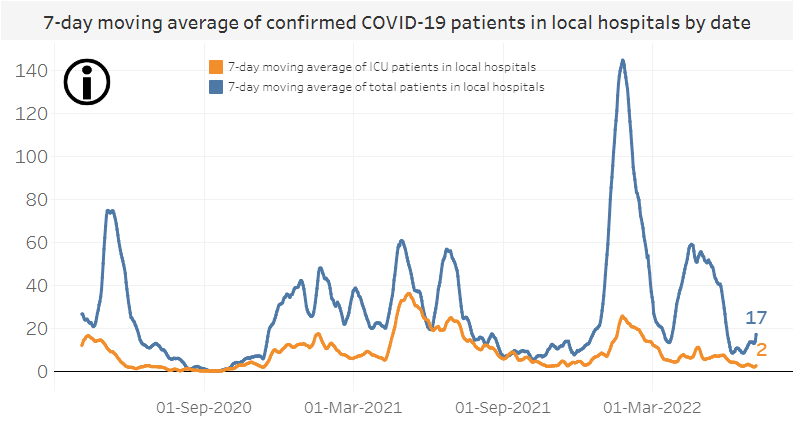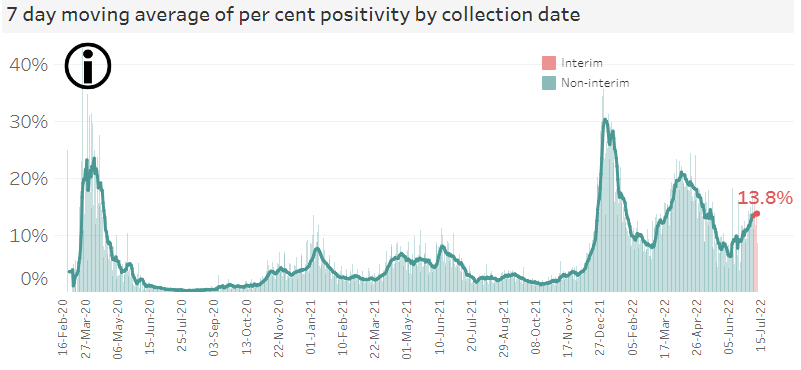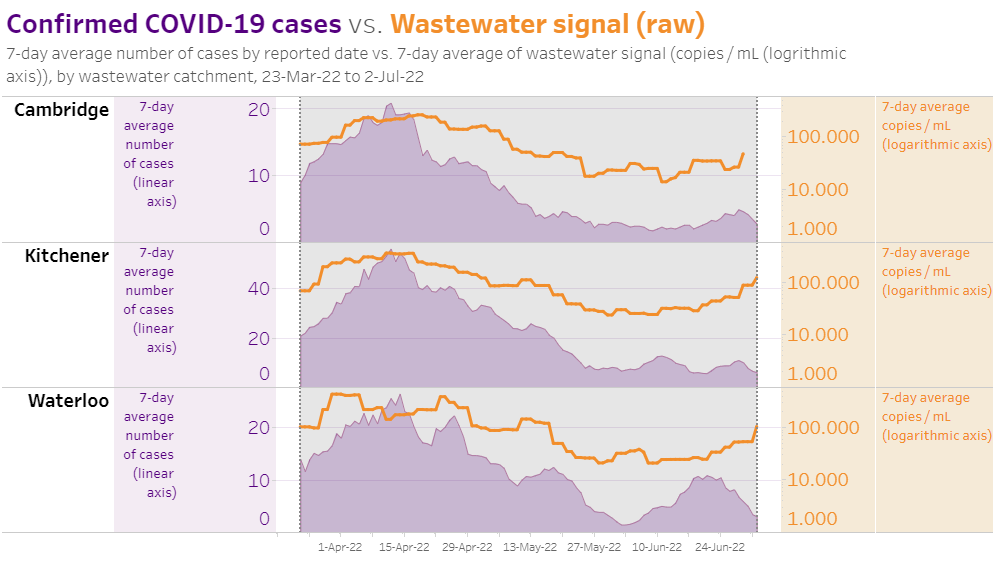Region of Waterloo reports 5 new COVID-19-related deaths
The Region of Waterloo is reporting five more deaths related to COVID-19 on Monday, bringing the death toll since the beginning of the pandemic to 429.
It comes as experts warn Ontario has entered a summer wave of COVID-19 driven by two Omicron subvariants, BA. 4 and BA.5.
According to the region’s dashboard, there are currently 33 people in local hospitals with the disease.
That number has more than doubled since the last update on June 30, when 15 people were reported to be in hospital.
Four patients are currently in ICU.
 (Region of Waterloo)
(Region of Waterloo)
The region says the deaths reported Monday are a man in his 50s, a man in his 60s, a man in his 70s and two men in their 90s.
Public health officials say the number of active outbreaks in high-risk settings rose by five to 15 on Monday.
Nine of those outbreaks are in long-term care or retirement homes, three are in hospitals, and three are in congregate settings – a category that includes shelters, group homes and correctional facilities.
The region’s seven-day average test positivity rate sits at 14 per cent.
 Results from the past week are considered interim and are shown in red. (Region of Waterloo)
Results from the past week are considered interim and are shown in red. (Region of Waterloo)
Eighty-nine per cent of people aged five and up in the Waterloo region have received at least one dose of a COVID-19 vaccine, 86 per cent have got two.
The region updates its COVD-19 dashboard weekly. Typically new numbers are released on Friday.
'THIS IS WHAT A RESPIRATORY VIRUS DOES'
Infectious diseases specialist Dr. Sumon Chakrabarti says this latest wave could increase immunity in the population as we head into a cooler fall.
“I know that there's a lot of talk about doing things on the ground, like masking to try and stop this wave,” said Dr. Chakrabarti. “We can't stop this. This is what a respiratory virus does. We know at this point in time, for those that are higher risk, what to do, like wear a high-quality mask to stay safe. But otherwise, remember the vaccination works great, there's a lot of immunity on the ground and much of what we are seeing is mild disease.”
He adds: “it can occasionally have an unintended positive effect because what it does it give the population some immunity which then can go on to the early to mid-fall.”
The Ontario Science Advisory Table says wastewater indicators are currently half of where they were during the peak of the omicron wave in April.
 (Region of Waterloo)
(Region of Waterloo)
CTVNews.ca Top Stories

How quietly promised law changes in the 2024 federal budget could impact your day-to-day life
The 2024 federal budget released last week includes numerous big spending promises that have garnered headlines. But, tucked into the 416-page document are also series of smaller items, such as promising to amend the law regarding infant formula and to force banks to label government rebates, that you may have missed.
Which foods have the most plastics? You may be surprised
'How much plastic will you have for dinner, sir? And you, ma'am?' While that may seem like a line from a satirical skit on Saturday Night Live, research is showing it's much too close to reality.
opinion I've been a criminal attorney for decades. Here's what I think about the case against Trump
Joey Jackson, a criminal defence attorney and a legal analyst for CNN, outlines what he thinks about the criminal case against Donald Trump in the 'hush money trial.'
$3.8M home in B.C.'s Okanagan has steel shell for extra wildfire protection
A home in B.C.'s Okanagan that features a weathering steel shell designed to provide some protection against wildfires has been listed for sale at $3.8 million.
Diver pinned under water by an alligator figured he had choice. Lose his arm or lose his life
An alligator attacked a diver on April 15 as he surfaced from his dive, nearly out of air. His tank emptied with the gator's jaws crushing the arm he put up in defence.
Psychologist becomes first person in Peru to die by euthanasia after fighting in court for years
A Peruvian psychologist who suffered from an incurable disease that weakened her muscles and had her confined to her bed for several years, died by euthanasia, her lawyer said Monday, becoming the first person in the country to obtain the right to die with medical assistance.
Mystery surrounds giant custom Canucks jerseys worn by Lions Gate Bridge statues
The giant stone statues guarding the Lions Gate Bridge have been dressed in custom Vancouver Canucks jerseys as the NHL playoffs get underway.
Celebrity designer sentenced to 18 months in prison for smuggling crocodile handbags
A leading fashion designer whose accessories were used by celebrities from Britney Spears to the cast of the 'Sex and the City' TV series was sentenced Monday to 18 months in prison after pleading guilty in Miami federal court on charges of smuggling crocodile handbags from her native Colombia.
Wildfire leads to evacuation order issued for northeast Alberta community
An evacuation order was issued on Monday afternoon for homes in the area of Cold Lake First Nation.




























